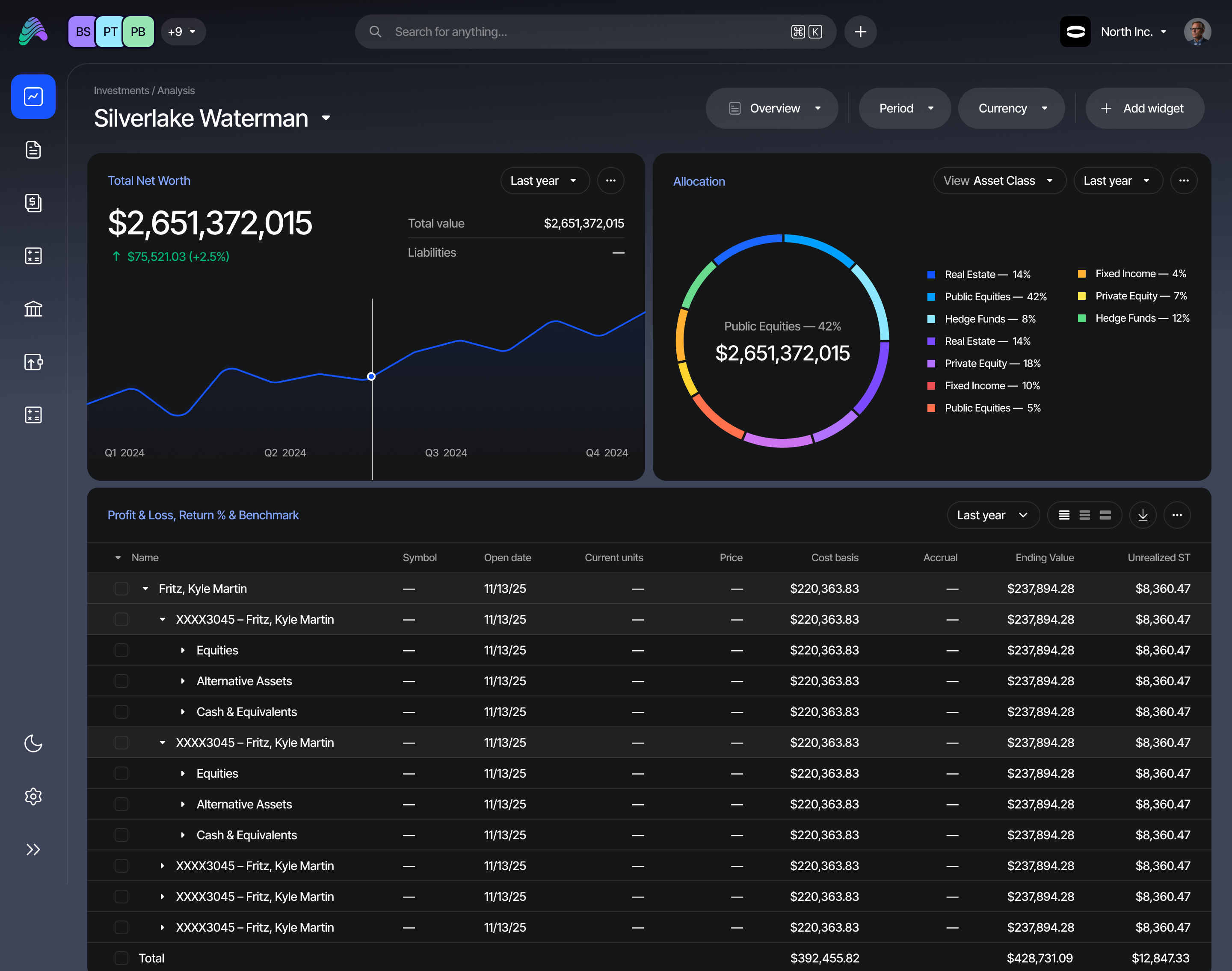A Virtual Family Office (VFO) is a modern, technology-enabled approach to managing family wealth that offers the same core services as a traditional family office: investment oversight, accounting, tax coordination, estate planning, and reporting, but with far less overhead, fewer staff, and significantly lower costs.
It is designed for high-net-worth families, typically managing between $50 million and $300 million in assets, who want institutional-grade control and sophistication without the expense and complexity of building a full in-house team.
Historically, family offices were reserved for the ultra-wealthy, often requiring $500 million or more in assets to justify the $2 to $4 million in annual operating costs. These costs came from building out internal teams of tax professionals, legal advisors, investment analysts, controllers, and administrative staff.
Running a traditional family office meant hiring 10 to 15 full-time employees and managing dozens of software systems, bank accounts, and legal structures. It was complex, costly, and inaccessible to all but the wealthiest families.
The Virtual Family Office changes that paradigm. Instead of relying on large internal teams, VFOs use advanced technology, particularly cloud-based platforms and AI, to automate back-office operations, streamline workflows, and provide real-time visibility into financial data.
A VFO might still rely on outside advisors such as lawyers, accountants, and investment consultants, but the day-to-day coordination, reconciliation, and reporting are increasingly handled by software.
One of the most transformative innovations in the VFO model is the rise of Agentic AI, or AI systems capable of independently managing tasks like transaction categorization, bank reconciliation, cash flow tracking, and investment performance analysis.
Rather than needing someone to manually download statements, enter data, and investigate discrepancies, a platform powered by Agentic AI can do it all automatically, flag anomalies in real time, and even recommend corrective actions. This means lean teams, sometimes just a single CFO or controller, can run sophisticated operations across dozens of entities with minimal manual intervention.
For families managing $50 million to $300 million in assets, the benefits are profound.
They gain the ability to track complex portfolios, manage multi-entity structures, and produce audit-ready reports without building out a full finance team. It also brings tighter control, more accurate data, and faster decision-making, all in a highly secure, scalable environment.
Importantly, a VFO does not replace trusted human advisors. Strategic decisions around tax structuring, estate planning, and long-term investment strategy still require expert guidance.
What changes is how the execution happens: smarter, faster, and far more cost-effectively.
In essence, the Virtual Family Office is not just a scaled-down version of a traditional family office. It is a smarter, more agile one. It is the future of family wealth management for those who want control, clarity, and sophistication without the bloat.


.svg)



.webp)



.png)
%20(1).png)
.png)


.png)
